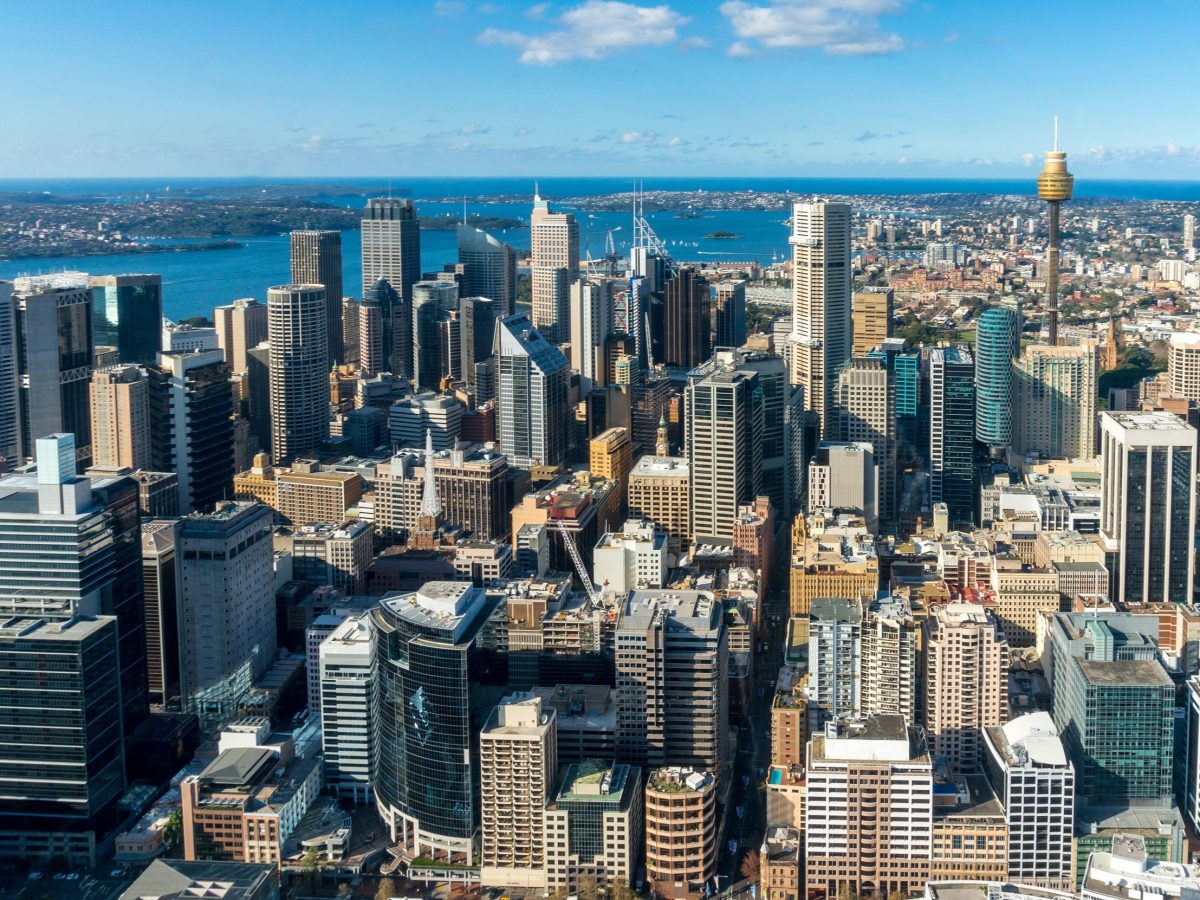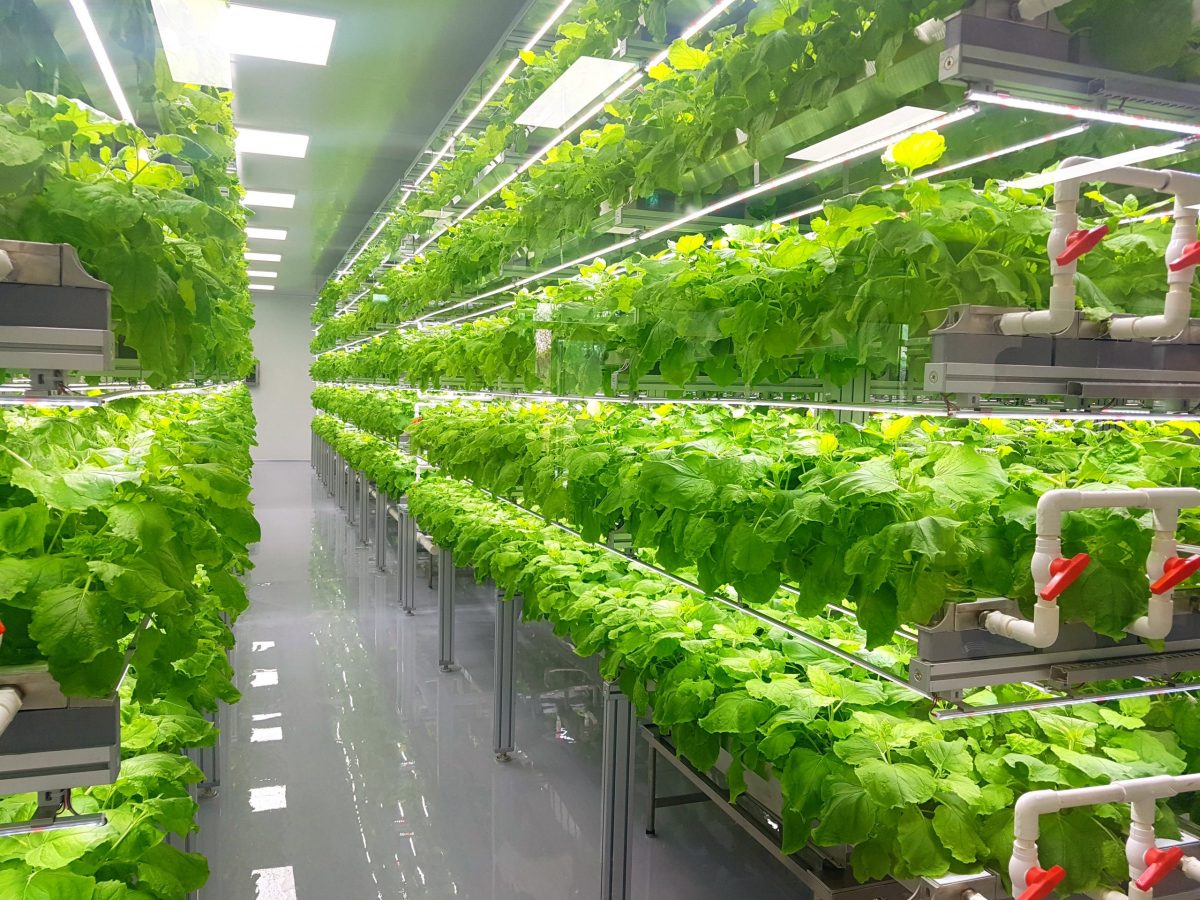Could vacant city office space be re-purposed for greater sustainability – incorporating a mix of uses including food production? UNSW Sydney PhD and FFSCRC PhD student Yi-Ya Hsu thinks so. Her research aims to give urban planners and policymakers the tools they need to formulate the smartest, most sustainable mixed-use strategy for the city’s available floor-space.

As in many modern cities, available floor-space in Sydney’s CBD increased as skyscrapers proliferated – but times changee and, post-pandemic, office-space demand is down. Could a mixed-use floorspace strategy be more sustainable? Credit: Shutterstock
The context
Over the past century, the vision of urban planners has extended from horizontal to vertical and, more recently, vertical and volumetric.
In Sydney – as in modern cities worldwide – the construction of more and more high-rise buildings has made the city centre more compact and denser.
Urban floor-space area tends to change significantly from time to time: In recent years, the floor-space area of office buildings in Sydney’s central business district (CBD) has increased.
Kezia Yi-Ya Hsu’s doctoral thesis, titled ‘Progress toward sustainable floor-space mix: The future CBD workplace in Sydney’, is exploring how the social and economic environment implicate three-dimensional floor-use change in complex urban systems such as Sydney’s central business district.
The challenge
Hsu’s research aims to apply the principles of ‘volumetric urbanism’ to establish a model analytical framework – a framework that can assist planners in developing a workable mixed strategy for smart, sustainable urban floor-space use that can be applied to various alternative needs, such as optimal profit for building management and land use.
Considering recent significant changes in demand for in-house office work, Hsu’s overarching goal in building the smart simulation model is the creation of optimal CBD workplaces that continue to attract employees.

Sydney Central Business District skyscrapers: In Sydney – as in modern cities worldwide – the construction of more and more high-rise buildings has made the city centre more compact and denser. Credit: Shutterstock
The research
Hsu is applying cellular automata (CA) rules in an agent-based model (ABM) to calculate the volumetric urban environment alteration in Sydney CBD. Then she’ll combine system dynamics and the ABM to develop two simulations: one of the general system environment; the other a 3D spatial simulation.
The impact
Hsu hopes that the outcomes of her research will be useful to city planners and economic policymakers looking to evaluate the potential uses, performance and productivity of available functional space in Sydney’s CBD, now and into the future. It may also be of use to planners and policymakers in other cities grappling with office-space-use and sustainability issues.
Importantly, Hsu’s PhD research will investigate spatial characteristics of Sydney office buildings that make them suitable (or potentially suitable, if repurposed) as agrifood business and employment, thus allowing relational advantages of a tenant mix that includes agribusiness and compatible industries.

Unused CBD office space could be repurposed for a variety of uses, including compact, resource-efficient vertical farms. Credit: Shutterstock
Hsu’s doctoral studies are being supervised by UNSW Sydney’s Dr Hoon Han, a Professor in the University’s School of Built Environment and head of its City Planning Program.
“Great thanks to my supervisor for providing me with the opportunity to study urban 3D development,” says Hsu. “I enjoy exploring the spatial patterns of data and uncovering the intricate interactions between them. I am passionate about 3D floorspace data, as it is quite rare in my home country.
“I also appreciate FFS for providing me the chance to focus on food functions in compact urban areas. It is such an important issue in future sustainable development, and I am grateful for their kindness and support throughout my PhD journey.”
More about Kezia Yi Ya Hsu
Yi Ya Hsu graduated from Taipei’s National Taiwan Normal University (NTNU) with a Bachelor of Geography in June 2017, supported by a College Student Research Scholarship from Taiwan’s Ministry of Science and Technology. In her final year, she won an Outstanding Student of the Year Award from NTNU. She also has undergraduate qualifications in Region and Tourism Planning and Geospatial information Science.
In July 2019, Hsu took out a Masters degree in Urban Planning from the National Cheng Kung University (NCKU) in Tainan, winning the Chinese Cartography Association’s Outstanding Thesis of the Year Award in October 2020.
Before relocating to Australia to undertake her PhD at UNSW Sydney, Hsu worked in various capacities: as a graduate research assistant (2017-19); as NTNU’s Sustainable Development Goals (SDGs) promotion manager; and for the NTNU Department of Geography’s Einstein Program (backed by Taiwan’s Ministry of Science and Technology) on various projects related to indigenous livelihood resilience and climate-change-related displacement.
Since August 2021, Hsu has been a Senior Project Specialist in GIS tech firm RiChi Technology Inc. in New Taipei, working on interface optimisation and new function development for the ‘Disaster Spatial Decision Support 3D Web GIS Platform’ project and on webpage geo function development for the ‘Renew of Taiwan Geo Names Informatics Platform’ project.
Her skillset encompasses knowledge of ArcGIS, ArcGIS Online, QGIS, GeoDa , SPSS, Vensim, Netlogo, Tableau and Power BI. Her research interests include spatial analysis, SDGs and ‘smart city’ strategies.
View Hsu’s Google Scholar profile.
View her ORCID profile.
Lead image: FFS PhD student Kezia Yi Ya Hsu. Image Courtesy of Kezia Yi Ya Hsu


